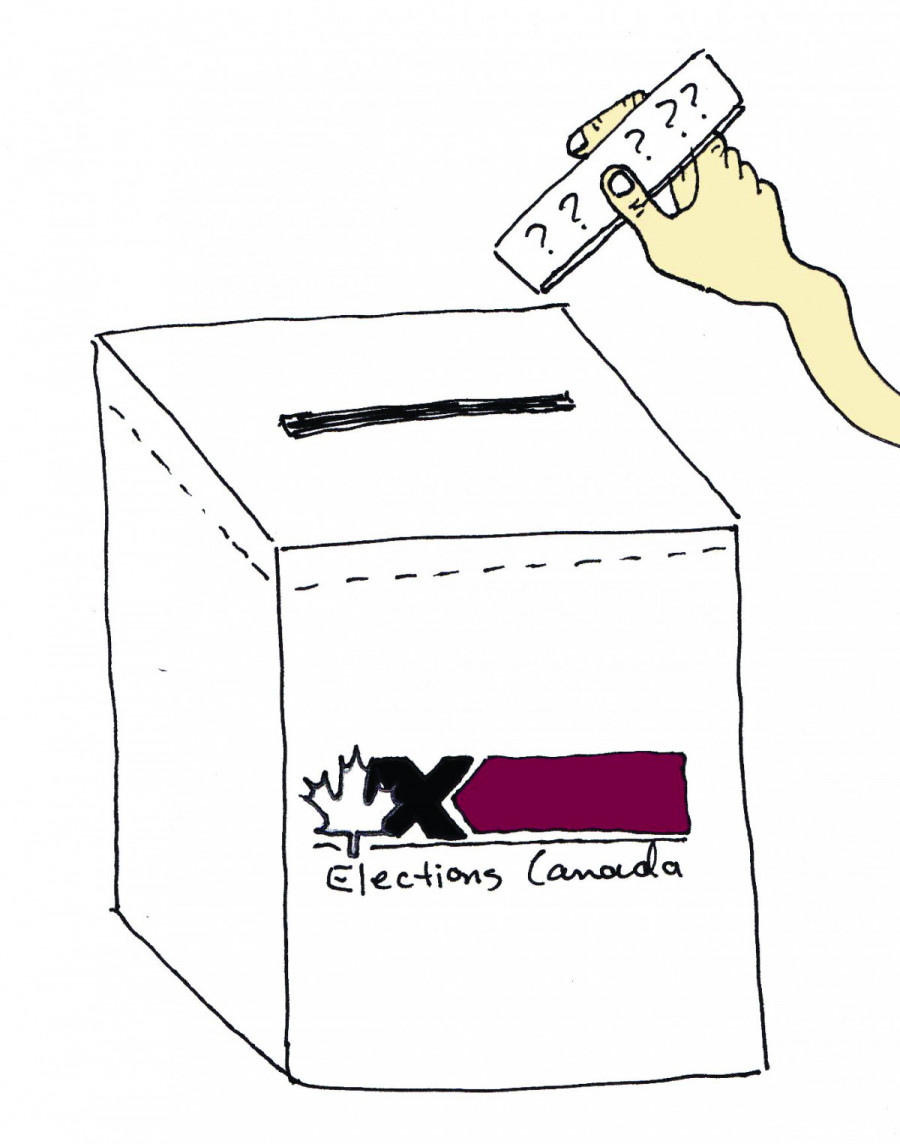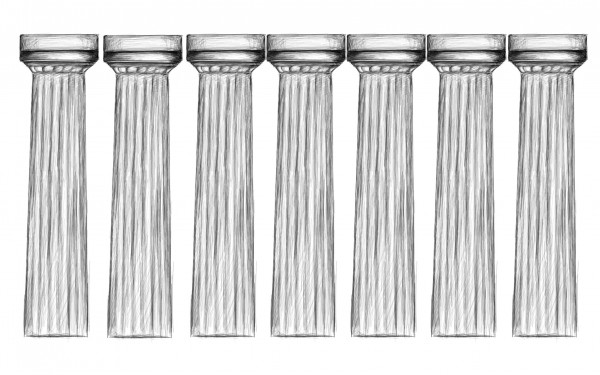Strategic Voting Doesn’t Make You a Clever Person
Being Complacent Does Not Inspire Meaningful Change
The same blood vessel in my brain that explodes when someone unironically calls themself a sapiosexual is struck when someone brags about strategic voting, as if it makes them a person of superior intellect.
For those who don’t know but probably still do it anyway, strategic voting is voting based on who’s more likely to win in a given riding, or to vote for a “lesser evil” to stop a “greater evil.”
Essentially, strategic voting tells you to vote for a candidate you “have to” vote for and not for the one you want to vote for.
For those bragging about doing this like it makes you the king of rationality: you didn’t crack a code for figuring this out.
In fact, almost everyone does it during elections and they have been doing it for ages.
One doesn’t have to look very far to assume that’s why we yo-yo between two ruling parties.
The pessimism it takes to believe change is impossible, multiplied by the number of voters feeling the same way, might just be why nothing changes beyond two parties mud-wrestling for a chance to please their benefactors.
Being pessimistic does not make you deep.
I’ve seen people tell others that it makes no difference to vote outside of the status quo, or the anticipated choice of those within a riding.
Strategic voting enforces what looks a lot like a two-party system, one that has put us in a place where we have to decide between two underwhelming leaders, to say the least.
One has done blackface more times than he is aware of and made unacceptable comments “about an Indigenous person”:http://ricochet.media/en/613/trudeau-is-no-friend-to-first-nations while claiming he stands for reconciliation. The way in which Trudeau described Senator Patrick Brazeau in their 2012 charity boxing match was prejudiced, and the way he gloated and openly chose the bet of hair cutting as a form of explicit humiliation toward his opponent for being Indigenous was plain racist. For those who may not be aware, Trudeau said he chose the loser getting his hair cut as the bet condition because Brazeau is indigenous and there is an implication of humiliation. Also worth noting are Trudeau’s attempts to “block billions in compensation to Indigenous children”:https://www.theguardian.com/world/2019/oct/04/trudeau-appeal-could-block-billions-in-compensation-to-indigenous-children.
The other candidate, a career politician and pro-life father with an emphasis on the traditional, nuclear family, appears to be in it for the upper-middle class.
He has his own issues, like lying about being an insurance broker, prioritizing tax breaks for high-income earners, and making scare-tactic attack ads, among other things.
There are many other reasons why these two are bad options, and many articles out there you can refer to.
The moral superiority of someone saying, smugly, that you have to vote for one to stop the other is absurd.
The pessimism is not productive, and appears to serve little other than to get validation from others.“Common sense” is used as coercion to maintain the status quo.
Saying someone will “split the vote” is a shaming tactic that serves only to prop up the dominant system.
The argument implied by “splitting the vote” is that voting for the NDP would take away potential votes for the liberals which increase the chances of the Conservatives getting more votes. This implies that only the Liberals stand a chance against the Conservatives, or implies a dominant two-party circumstance.
By that same argument, the People’s Party would also split the Conservative vote, but the people who align with those values still seem enthusiastic enough to vote where their values are; it seems like vote-splitting is a greater concern for the Liberals, which is odd because all this concern does is maintain a status quo where people are left unsatisfied.
The Liberals are more to the centre of the left, and if you don’t align with that, why should you vote for a party or candidate that doesn’t share your values?
The elitism that goes behind who is and isn’t electable can even be seen on the ballot, where you can see all of the candidates who are independent, or who didn’t have a $100,000 campaign budget for their riding, for the first time.
The elitist, paternalistic, and racist tendencies of political commentators jump right out of a house of horrors when we hear casual mentions of Canada “not being ready for” Jagmeet Singh.
We see Singh applauded for being composed and polite when faced with racism, and for saying Indigenous people deserve clean water, but where is our indignation that these talking points are even part of the conversation?
Yet, no matter how “well spoken” and “composed” he is said to be, people still say they’ll vote for a candidate in their riding they hardly know or want based on who is likely to win in their riding.
We even seem to ignore the fact that when we vote for our MP, we are voting for the person that will represent us and our values, not just a party.
Wouldn’t it be amazing if, instead of blindly ticking boxes based on party alone, we voted for the candidate that best networked with their community, based on their own name and values?
Shouldn’t the future of our country to be more than a game of numbers or a cringe competition?
Having multiple choices is great, if we actually consider and vote for the other choices we would like to see in government.
You are not spoiling your ballot by voting your conscience, the result of your vote is there, and it represents you and other like-minded citizens, regardless of who wins.
Don’t sell your choice to a party or candidate you don’t believe in because someone convinced you it’s worthless to hope and try for better alternatives.
Optimism is not foolishness, nor does it mean you’re helping the worst of the options by splitting the vote.
Optimism is courage and determination in the face of a disappointing, depressing situation.
You’re more rational for daring to hope and try than some puffed-up jerk on Facebook, who tries to make people feel bad for voting for what they want over what they deem realistic.
If no one takes a step, things will never move forward.
We once saw an orange wave that no one anticipated, and this should serve as a reminder that when people are fed up and ready to try something new, lots of things are possible.
Even changing the dynamic in government by diversifying the party affiliations of the MPs can make a difference.
If our system was structured differently, obviously things might look different.
However, we would need to vote for the government who would make these changes, not a government that will fight to maintain a system that benefits them.
So vote with your conscience, maybe even dare to vote with your heart.
The results might just show it.







